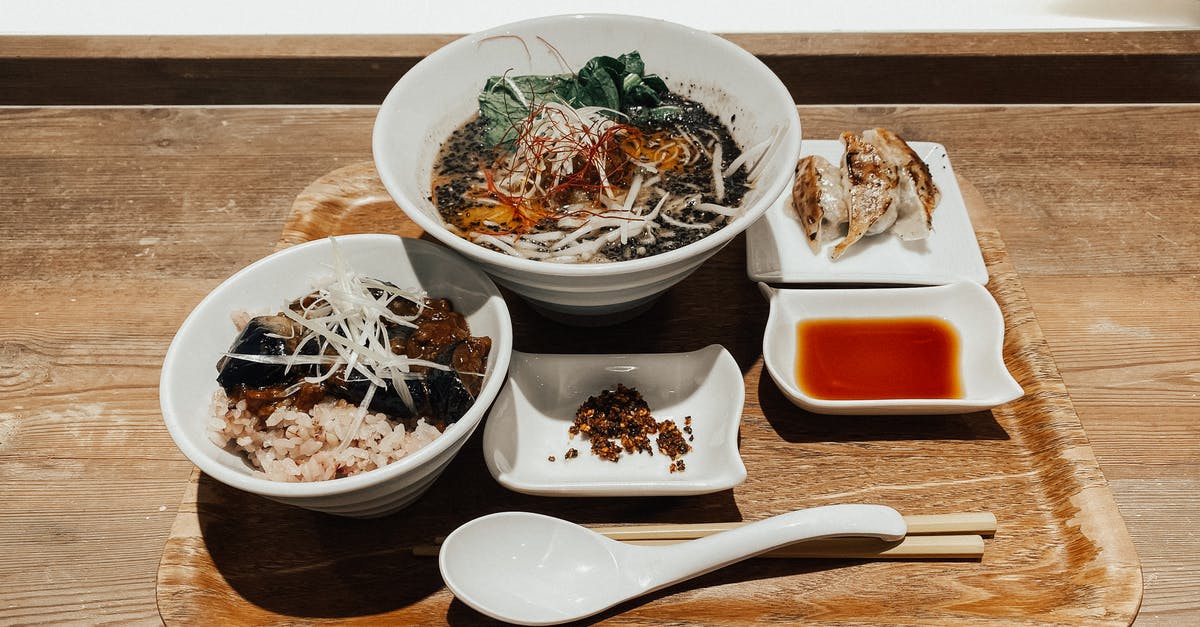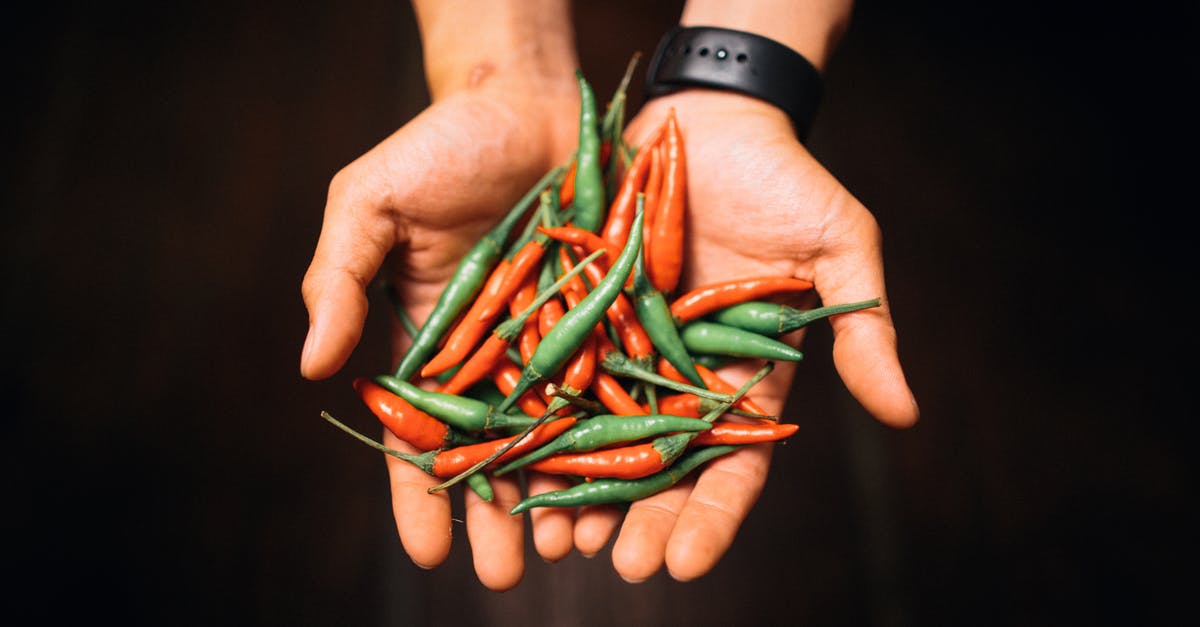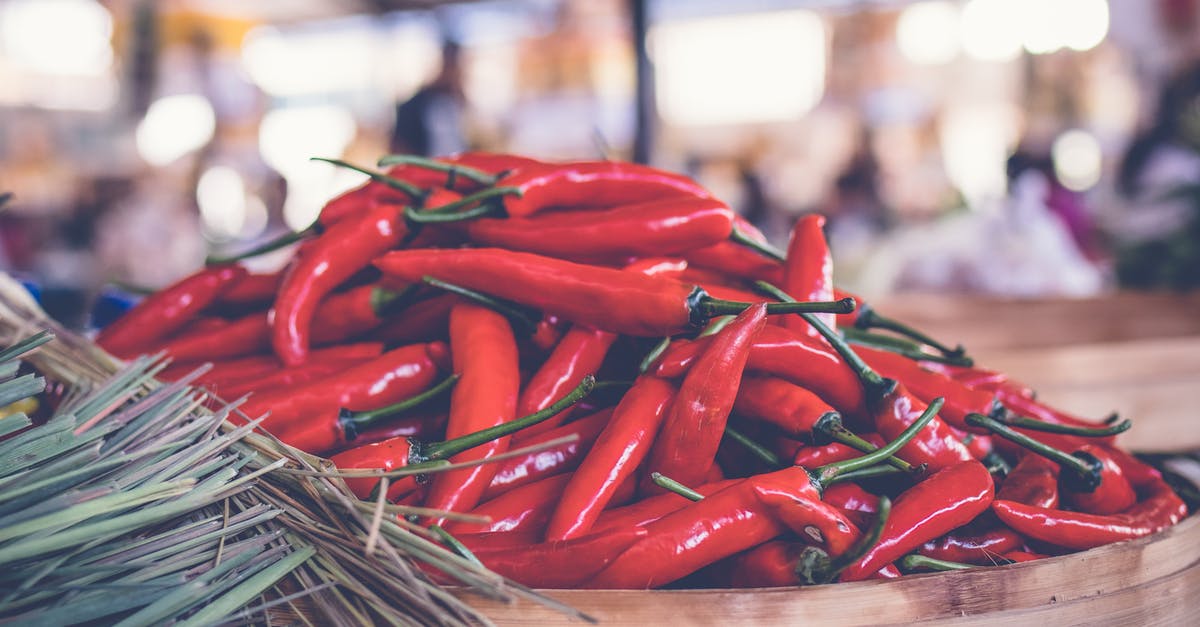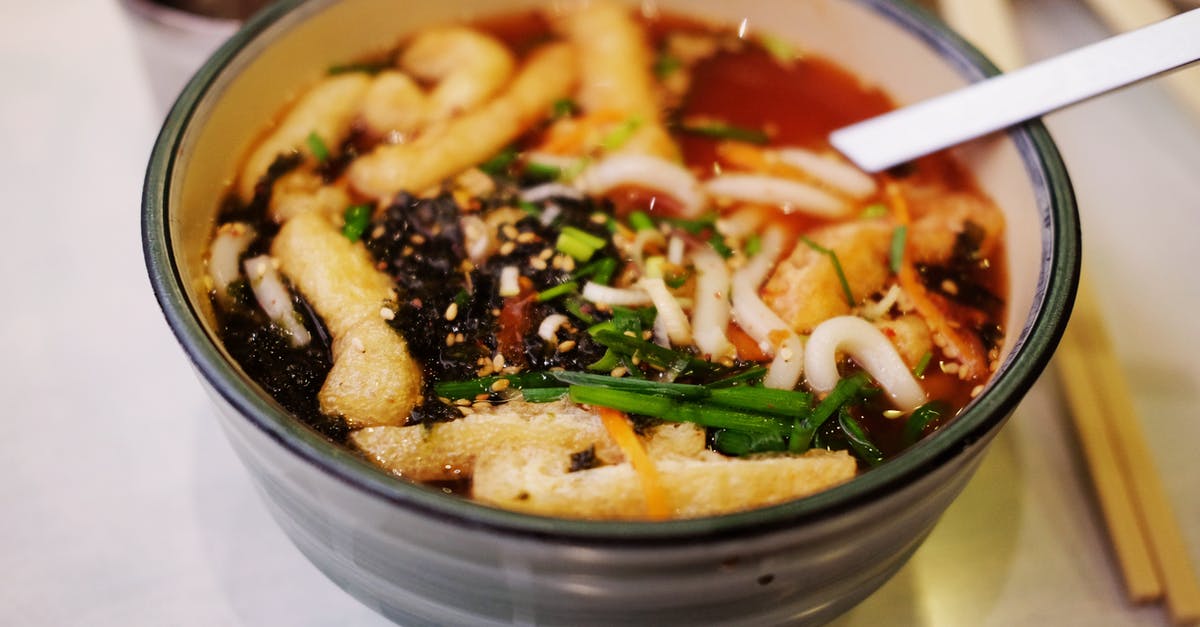Hot peppers in soup don't stay spicy

My favorite chicken-and-mushroom soup recipe incorporates hot peppers and, on upon immediate serving has a lovely kick. However the reheated leftovers are entirely bland, almost as if the "hot" from the peppers dissolves away into the soup.
I've tried using more peppers and hotter varietals, but still can't get the leftovers to have any appreciable level of spiciness.
This is the general recipe that I'm following:
- Poach chicken breasts in 6 cups water along with spices and garlic. Remove chicken, strain stock, discard solids.
- Add chopped mushrooms (hen-of-the-woods or shiitake), chile pepper, chopped ginger, tbsp vinegar, tbsp soy sauce, and simmer.
- After ~10 minutes, add back chopped up chicken breasts and simmer until meat is warmed through.
The original recipe called for 1 Fresno chile, thinly sliced. I've tried up to 6 Fresno chiles, but also, in separate tries, 6 serrano peppers and 6 habanero peppers. (My local supermarket doesn't carry anything hotter than habaneros.) When I slice the peppers, I retain the seeds and pith.
In all attempts, the broth itself doesn't become spicy, but on the first day the sliced peppers provide an ample "kick" and act like little pockets of spiciness. Regardless of the pepper type or quantity, the peppers in the leftover soup lose their kick, and the broth remains un-spicy.
My first instinct here is to remove the peppers from the broth and use them as a garnish; the fact that they're cooked with the broth however makes me think that the original recipe authors intended for the broth to take on some of the spiciness from the peppers.
Questions:
- Why do the peppers lose their spiciness in the leftovers?
- What are some possibly ways to adjust this recipe to make the broth take on the spiciness of the peppers?1
1 I ask this so that I can try and do what the original recipe author intended by cooking the peppers with the broth: making the broth spicy. If I can manage that, then I can service the hot peppers as a garnish and then not worry about them losing their kick overnight.
Best Answer
The perception of "spicy" is completely dependent on the person. And there is a "tolerance building" thing going on too: what is intolerably hot for somebody not accustomed to heat might not even register for somebody who eats hot frequently. As an anecdote, I had a friend who started eating hot. After a month, she started asking the cook to use pure tabasco instead of tomato sauce on the pizza. After another month, she complained that the pizza was made with tomato sauce and the poor cook had to let her taste her from the bottle to convince her that the pizza was indeed made with pure tabasco, it just didn't have the same "kick" for her after habituation.
From your description of your soup only feeling hot enough for you after adding six habaneros with the seeds, it seems that you have developed an extremely high heat tolerance. And this would be an explanation for what you observed.
Six habaneros will contain a certain amount X of capsaicin. When your soup is fresh, the pepper has enough capsaicin concentration that you notice it and enjoy it.
But when you leave it alone, the broth dissolves the capsaicine (unlike pure water, the fat and maybe also the solvents from the vinegar enable it to do so). So you end up with a kind of "capsaicine tea".
But remember that you have the same amount X of capsaicine, this time diluted in litres of soup, as opposed to sticking all in one bite of pepper. So, now that you bite on the pepper, you don't get the heat. But when drinking the broth, its concentration is so low that it does not register for somebody with a high heat tolerance. From your subjective point of view, the heat has "disappeared".
The original intention of the recipe author was certainly that the whole soup becomes somewhat hot. And for people with less heat tolerance, it will work well. They will be able to eat the broth and notice the heat, even with much lower quantities of hot pepper.
For you, it seems that you still haven't reached the dose which will work for you in a soup. So you can add more capsaicin - either use more peppers, or find a source for hotter ones. If the logistics are a problem, buy them dried. But note that at no point will the whole soup taste as hot as the single fresh pepper (due to the dilution), and also that you will become habituated with time, just like my friend with the tabasco pizza.
Pictures about "Hot peppers in soup don't stay spicy"



Quick Answer about "Hot peppers in soup don't stay spicy"
What kills the heat from hot peppers?
To stop the mouth flames you need to neutralize the burning heat from the capsaicin that binds to your taste buds. Capsaicin is soluble in both alcohol and fat so full fat dairy and alcohol are possible solutions.How do you neutralize cayenne pepper in soup?
You can add sweetness to your dishes to help ease excessive heat from cayenne pepper. Simply stir a little sugar or honey into the dish. When using sugar, many experts suggest brown sugar as the best option. Sugar is especially effective when you combine it with acid in the form of citrus or vinegar.Does watering peppers less make them spicy?
The ingredient in hot peppers which gives them that zing is called capsaicin and is referred to as the pepper's natural defense. When jalape\xf1o plants are stressed, as when they are lacking water, the capsaicin increases, resulting in hotter peppers.Does chili get less spicy as it cooks?
If you're cooking with chiles, know that the longer they cook, the more they break down and release their capsaicin, which will permeate the dish, but with continued cooking, the capsaicin dissipates. Therefore, to reduce spiciness, cook chiles only briefly, or for several hours.Hot Pepper
More answers regarding hot peppers in soup don't stay spicy
Answer 2
Perhaps you should try using more spices rather than more peppers. I do a lot of Cajun/creole dishes which are very hot. They do not rely on fresh peppers for their heat, they rely on powders. I use creole seasoning, cayenne pepper, black pepper and tabasco a lot. Also, you might try replacing the vinegar with lemon or lime juice. Again, that's what is used in a lot of the Cajun/creole recipes.
Answer 3
If you are microwaving the soup, this will degrade capsaicine extremely quickly as it heats up quicker than other organics in the microwave and is very volatile and will evaporate.
Answer 4
The recipe strikes me as odd because the aromatics (chili, ginger, probably the mushrooms too but the authors intent is unclear there) would usually be fried in oil or fat, and then diluted/deglazed with the stock. That would diffuse the heat into the soup from the chilies. And then, you can add in further raw chopped peppers only towards the end of cooking, or even as a garnish? Powdered or flaked dry chilis added at that stage will also give heat, however they can end up very harsh in a low-fat, watery broth like this soup seems to have ... and in this case, "1/10th the amount of a dried product with 10x the scoville rating" can go wrong in even harsher ways. Oh, and... If the habaneros your supermarket has ARE actually habaneros, it is the hottest they will have because they ARE already only one order of magnitude weaker than the hottest ones known. If you can prep them barehanded without either very thorough hand care or unpleasant surprises soon afterwards, likely these are not habaneros.
Answer 5
Try using a decent amount of black pepper, especially if it's a chicken base soup.
Sources: Stack Exchange - This article follows the attribution requirements of Stack Exchange and is licensed under CC BY-SA 3.0.
Images: DLKR, Bence Szemerey, Artem Beliaikin, JAMIE DIAZ
